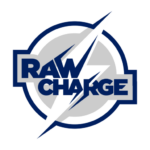Jonathan Drouin isn’t a bad guy.
There’s a fairly common fan opinion out there right now that he is. Words like “abandonment” and “petulant”, and various other synonyms with varying degrees of vulgarity are thrown around quite commonly with regards to this scenario Drouin has put himself in via a trade request made public and a refusal to continue to participate in the AHL while he awaits a trade.
Is he being selfish? Absolutely. The question really is, is that selfishness such a sin given the business this kid is in?
Consider this: the Tampa Bay Lightning organization, and Steve Yzerman specifically, have a job to do. “We have a hockey club to run.” That’s not just lip service or a talking point he and the team he represents are sticking to. It’s a fact that drives right at the heart of the ongoing conflict between player and team – each is running a business with interests that do not necessarily overlap.
The Lightning have a vested interest in suppressing Jonathan Drouin’s value for as long as possible. “Take your lumps”, they’ll say in public. “Grind it out in the AHL. Get better away from the puck. Become a complete player.” Now, none of that is untrue, necessarily. He does need to get better, and the team is well within its rights to decide that the AHL is the place to do it, as it was with most of the young talent that has matriculated to the NHL under Yzerman’s watch.
In addition, the Lightning do have a strong group of forwards ostensibly ahead of Drouin on the depth chart (last season’s Brenden Morrow debacle notwithstanding) and a shrewd awareness of a need for underpaid talent in the lineup in order to compete in today’s salary-capped NHL. Yzerman and the team have a secondary interest that isn’t shared by the player; not just to improve Drouin as an athlete but to maintain control of him as an asset for as long as possible. One way that is achieved is by deferring his rise to the NHL for as long as possible – the same concept that led the team to slide his 3-year entry-level contract a year by returning him to the QMJHL for a year where he had no business dominating 16-year old defenders.
That’s the way the cookie crumbles for today’s NHLer, unfortunately. They hold very few cards and, more often than not, are forced to do what the team tells them to do. Usually, it doesn’t blow up like this. Most players just accept the shitty circumstance they’re drafted into, whatever it may be, and are happy to play the game they love. Worst case, they can decide their own fate years down the road as a UFA if they bust their butts and accrue the NHL experience required by the CBA. But some aren’t ok with that plan, and some decide to do something about it.
Existing NHL veterans agreed to the current CBA, taking from future generations of their ilk in order to hold onto what little they had left that the owners hadn’t strongarmed away from them. Jonathan Drouin, in the end, simply had the audacity to decide enough was enough and do something about it, not unlike presumptive 1st overall pick Auston Matthews’ decision to play his draft year in Europe. We can argue about Allan Walsh’s influence on Drouin’s decision-making – it was certainly more than zero, but how much more is debateable – but the end result is a player who will not lie down and take his lumps any more. The Lightning took a calculated risk that Drouin would act like 99% of other players do. And the Lightning were wrong.
This puts Yzerman in a pickle, of course – as Drouin devalues himself as an asset with each new public declaration, Yzerman’s desire to move the asset increases but his likely return decreases. A former 3rd overall pick with so much skill and promise should theoretically fetch a small fortune in return. Consider what the Lightning received from former 6th overall pick Brett Connolly just last year – a pair of 2nd round picks in deep drafts in spite of underwhelming NHL performance in a decently sized sample of games played for the once highly-regarded Canadian winger.
With Drouin under contract for at least one more year and team control as an RFA beyond that, Yzerman is juggling competing incentives: the first is to acquiesce to the demand and turn an asset offering no value to him into something he can use by moving the player as quickly as possible with the trade deadline fast approaching. But he also has to maintain his commitment to the organization not to make a deal that doesn’t make the team better, either now or into the future. Furthermore, he is also undoubtedly under pressure from other management groups around the league who want to see him take a hard line with Drouin and not embolden future young players into similar maneuvers to orchestrate their own exit from a team situation they or their agent deems unfavorable. After all, the owners went to great lengths during CBA negotiations to set this situation up, protecting teams from players attempting exactly this. Of course they don’t want to see Yzerman do what Drouin and Walsh are asking for, thus undermining that system.
In the end, this isn’t really about character, or loyalty, or morality. Its’ about business. The Lightning went about theirs, doing what was best for them. Drouin did the same. And it doesn’t look like they’ll be doing business together any more.

